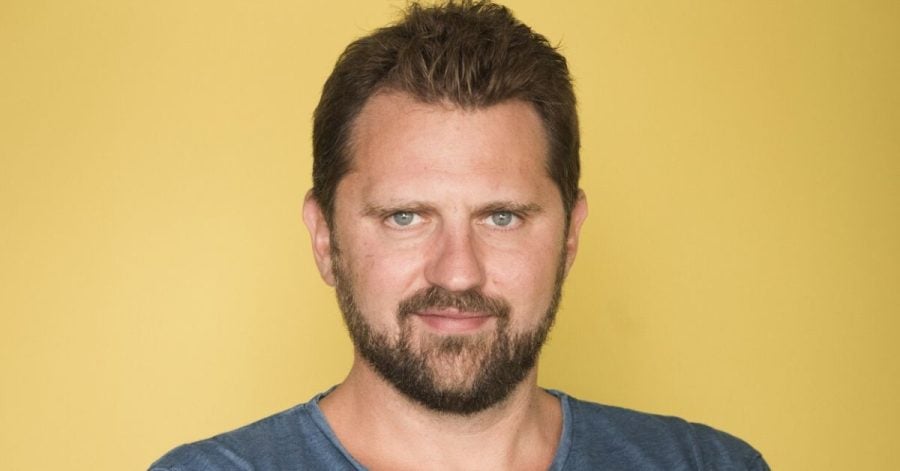What does the future hold for fintech as we step into 2024? In the aftermath of a challenging 2023 marked by market shifts and financial uncertainties, The Recursive sat down with the Greek founder of Victor Trokoudes, co-founder and CEO of UK-based smart money app Plum, to discuss the effects of the downturn, changing financial landscapes, and how the company has navigated through the past year.
Last month, Plum, one of the fastest-growing companies in the industry, entered a strategic partnership with Eurobank which will also see the bank making a €10 million investment in the startup. The aim is to grow its presence in Greece as well as the surrounding region and onboarding 700K active customers in Greece by 2027.
In the interview, Trokoudes shares his expectations about the impact of this strategic collaboration, as well as the new products that the company plans to introduce throughout 2024.
The Recursive: How has 2023 been for Plum, what were the ups and downs during the year?
Victor Troukoudes: 2023 was a very interesting year for fintech, right? It came off the top of the market, which meant that the funding situation was harder and some companies as a consequence struggled to raise money. This created challenges for Plum because we had some partners that were under pressure financially.
So in a way, it was a tricky year because we had to spend more time on changing partners and less time on product development. But now that all of that has happened, I think we are going to have a super interesting year in 2024. The companies that have survived and are performing well will have a very big and empowering playing field to go for.
What is the importance of having healthy spending habits in a downturn and what sets Plum apart from the rest of its competitors?
As a business we’re very well placed because our business model is robust in various economic environments. But fundamentally, the reason we’re well set is that our mission is to help people build their wealth well for the long run, which effectively means that our proposition matters in all economic environments.
So it matters when the markets are rallying, as you still need to and want to invest your money. When the markets are in a downturn or when you have less income, you’re more likely to save and ensure you’re getting interest. Plum is adaptable to all economic environments. With Plum, people can have a high interest account plan that in Europe pays around 3.6% and in the UK pays about 5.15%.
You can invest in the stock market either via diversified funds, or other instruments. So it gives you that whole range of options, which means that we still acquire users in all of these various economic environments and that is the critical component of Plum.
What are the main challenges that are ahead for fintech in 2024?
For many companies that continue to fundraise, it will be harder if you’re unprofitable. So you need to have a runway and progress quickly toward sustainability – if your business model is only very good in a bull market then for those folks out there it will be a bit more challenging because you won’t see the growth you saw before.
But I think there are also positives and those are that if you’re a fintech that has reached some level of scale then you won’t face as much competition from new entrants into the market. You will face competition from incumbents, but there will be fewer new entrants into the market.
What type of fintech trends do you expect for 2024 and how does Plum plan to integrate some of these trends?
Clearly AI. It has always existed within Plum to optimise processes and important internal tools that we’re using more and more to become more efficient and reduce waiting time with customers and improve our operations internally. So that’s a big element. However, even more valuable, I believe, is the product innovations that you can do because of large language models.
And we’ve worked on this from day one, because we had two things in mind. One, you need to automate savings, for people to move money out of their current accounts and be saving because there’s this negative inertia that people have with money. So we’ve addressed that with our saving algorithms. And the second piece is helping people get a better understanding of their money and being able to take the right actions. For this, we recognise that human beings are social animals and like to discuss things – and the language models give us the ability to have these discussions at scale with customers.
So that’s a very powerful element and we are exploring how we can have conversations with people based on the financial products and solutions we can give them and help them have a better understanding of their financial position.
What are some of the challenges that you see while implementing such technology?
There’s a lot around security and where the data is being shared in order for the model to make inferences. However, I think that’s already partly been solved and further progress is being made so that people can have confidence that their data is protected.
There are also the issue of hallucinations and ensuring technically that the model is able to say the right thing, and how consistent that is with what you’d expect a human to do in that case. So I think those are the challenges around it, but they’re challenges of any new technology that will be resolved over a period of time.
What are Plum’s plans for 2024?
2024 is on track to be Plum’s biggest year yet. We have signed a commercial partnership with the leading Greek bank, Eurobank, so 2024 will be the year when we will be looking to bring that partnership to fruition to life. That will be one of our big plans to have a very strong proposition in partnership with Eurobank in Greece, which we think will be a very powerful thing for the local market.
We’ll also look to secure further growth in Europe by launching ETFs and having a very complete investment offering across all nine EU markets like we have in the UK. And we’re also hoping to innovate on the product side with this generative AI model that we have. We’re very excited about what’s to come.








